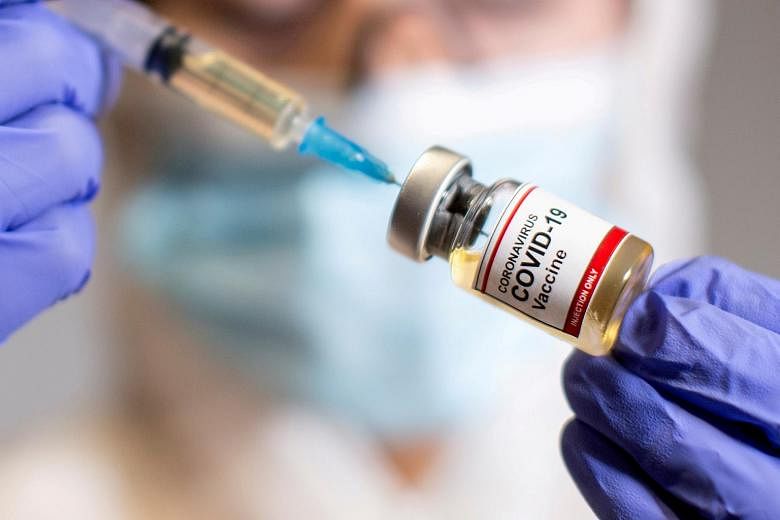SINGAPORE - With pharmaceutical firms rushing to produce vaccines that work against Covid-19, approving authorities have to reassure the public and show that no short cuts were being taken in the process, observers said on Tuesday (Dec 1).
Any mistake may add to the fear that people may have, and erode their confidence in the reliability of vaccines, said Professor Tikki Pangestu, a visiting professor at the Lee Kuan Yew School of Public Policy and former director of the World Health Organisation's (WHO) research policy and cooperation department.
Citing a recent case where biopharmaceutical firm AstraZeneca acknowledged a key error in the Covid-19 vaccine dosage received by some of its study participants, he called for more transparency and accountability. This is after the firm last week announced preliminary results that showed it appeared to be 90 per cent effective at preventing Covid-19.
Prof Pangestu was sharing his thoughts during an hour-long panel discussion on vaccines confidence in the time of Covid-19. The event, organised by the EU-Asean Business Council and moderated by its executive director Chris Humphrey, comes as Covid-19 vaccines move through the final stages of clinical trials and regulatory approval.
The other panellists include The Straits Times' senior health correspondent Salma Khalik; Dr Zulkifli Ismail, a consultant paediatrician and paediatric cardiologist who is secretary-general of the Asia Pacific Pediatric Association; and Dr Nan-Chang Chiu, chief of the paediatrics department at MacKay Children's Hospital in Taiwan and a director of the Taiwan Pediatric Association.
During the session, they shared their concerns about the speed at which the coronavirus vaccines are coming out. It has been under a year and some of these vaccines are already on the final phase three clinical trials.
Traditionally, it can take years before new vaccines can go to the market, Dr Chiu pointed out.
Ms Khalik touched on the availability of information surrounding the vaccines, noting that not all are made equal and may bring different side effects.
"In terms of the approving authorities, because the governments are so desperate for a vaccine, are they allowing short cuts?" she added, adding that the authorities have to show that no short cuts are being used.
The panellists agreed that it would take a concerted effort from major stakeholders such as the government, healthcare professionals and even the media to raise awareness and build trust on this front.
Prof Pangestu, however, pointed out that public health professionals have to be more savvy in reaching a wider range of people, and "not just overwhelm them with data, information and graphs".
The influence of social media should not be ignored, Dr Zulkifli shared, as fake news on vaccinations can spread rapidly online.
Others on the panel called for global agencies, such as the WHO, and local governments to step up and play a bigger role in quashing false information online.
Ms Khalik said the media's role is to share what the vaccines can do, the risks they face, and let the people make informed choices.
"So I think the decision has to rest with the individual, but they must have all the facts available to them before they can make that decision," she added.












